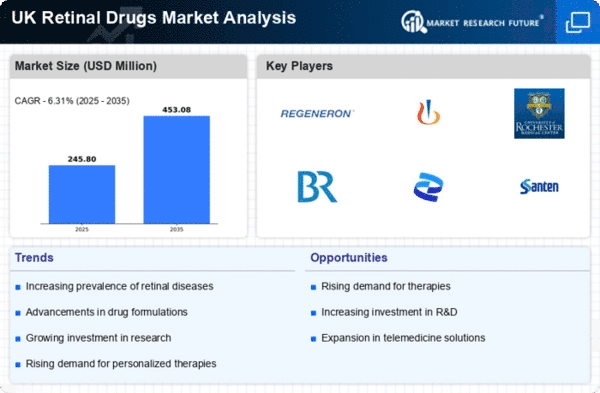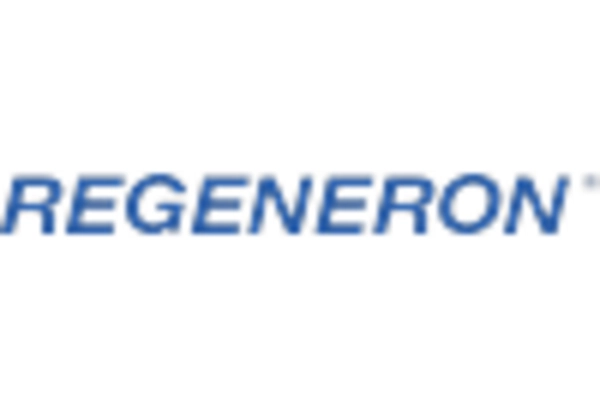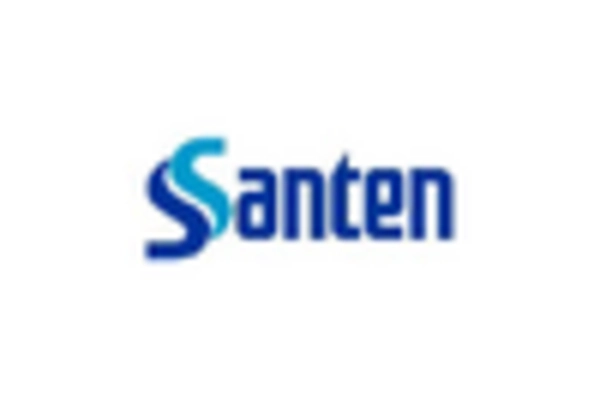Growing Awareness and Education
There is a notable increase in awareness and education regarding retinal health among the UK population, which is positively impacting the retinal drugs market. Campaigns aimed at educating the public about the symptoms and risks associated with retinal diseases are becoming more prevalent. This heightened awareness encourages individuals to seek medical advice sooner, leading to earlier diagnosis and treatment. As a result, the demand for retinal drugs is likely to rise. Additionally, healthcare professionals are receiving enhanced training on the latest treatment options, further supporting the market. Public education and professional training are expected to contribute to the growth of the retinal drugs market.
Advancements in Drug Development
Technological advancements in drug development are significantly influencing the retinal drugs market. The introduction of novel therapies, including biologics and gene therapies, has the potential to transform treatment paradigms for retinal diseases. For instance, recent innovations in drug delivery systems, such as sustained-release implants, are enhancing the efficacy of existing treatments. The UK has seen a surge in clinical trials focusing on these advanced therapies, with over 100 ongoing studies related to retinal conditions. This focus on research and development is likely to yield new treatment options, thereby expanding the market. As these advancements continue to emerge, they may lead to improved patient outcomes and increased market penetration for retinal drugs.
Government Initiatives and Funding
Government initiatives aimed at improving eye health are playing a crucial role in the retinal drugs market. The UK government has implemented various programs to enhance awareness and treatment of retinal diseases. Funding for research and development in ophthalmology has increased, with the NHS allocating substantial resources to combat vision-related disorders. In 2025, the government announced a £50 million investment in eye health research, which is expected to foster innovation in the retinal drugs market. These initiatives not only support the development of new therapies but also promote early diagnosis and treatment, ultimately benefiting patients and driving market growth.
Increase in Healthcare Expenditure
The rise in healthcare expenditure in the UK is a significant driver for the retinal drugs market. With the NHS's budget increasing annually, there is greater funding available for innovative treatments and therapies. In 2025, healthcare spending is projected to reach £200 billion, with a portion allocated specifically for ophthalmic care. This financial commitment allows for the procurement of advanced retinal drugs and the implementation of new treatment protocols. As healthcare expenditure continues to grow, it is likely to facilitate access to cutting-edge therapies, thereby expanding the retinal drugs market. The correlation between increased spending and improved patient access to treatments is a critical factor in market dynamics.
Rising Prevalence of Retinal Disorders
The increasing incidence of retinal disorders in the UK is a primary driver for the retinal drugs market. Conditions such as age-related macular degeneration (AMD) and diabetic retinopathy are becoming more common, particularly among the aging population. According to recent estimates, approximately 2.5 million individuals in the UK are affected by AMD alone. This growing patient base necessitates the development and availability of effective retinal drugs, thereby propelling market growth. Furthermore, the National Health Service (NHS) has been investing in advanced treatment options, which may further stimulate demand for innovative therapies. As the population ages, the burden of retinal diseases is expected to rise, indicating a sustained need for effective interventions in the retinal drugs market.
















